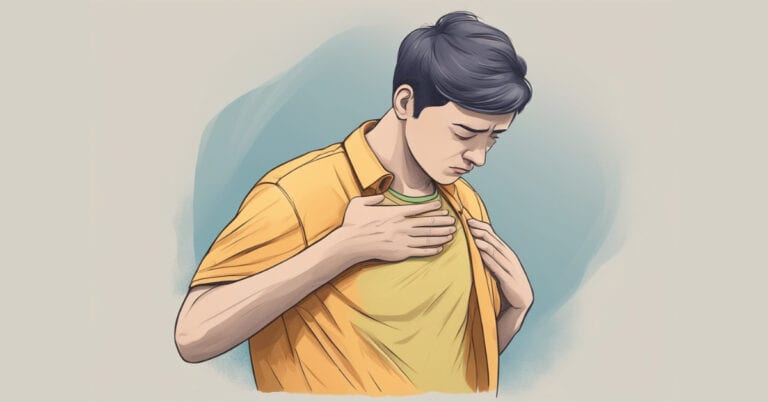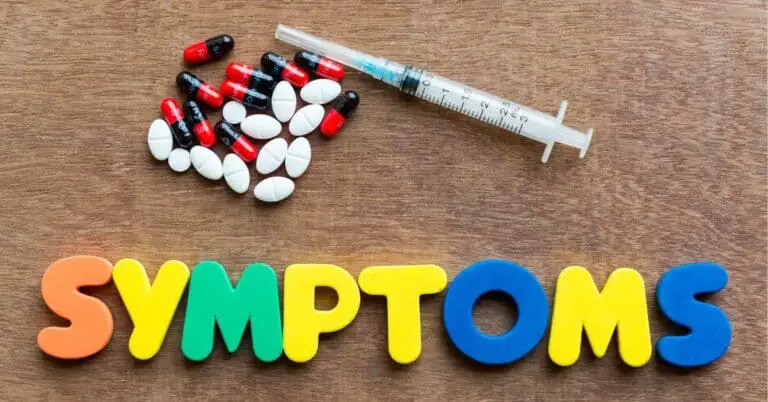Men’s Health Guide: Proactive Strategies for Lifelong Wellness
Maintaining optimal health is a multifaceted challenge that requires awareness, determination, and consistent effort. As a man, taking charge of your health is crucial, not only for your present well-being but also to prevent potential future health issues. Understanding men’s health involves a comprehensive approach that includes proper nutrition, regular exercise, awareness of necessary health screenings, and vigilance in regards to sexual and reproductive health. It’s imperative that you stay informed and proactive in managing your health to lead a fulfilling life.

The path to better health is not about drastic changes but rather about sustainable habits and informed decisions. You must cultivate a balanced diet, prioritize exercise, and schedule routine check-ups with your doctor to monitor different aspects of your health. Beyond physical health, taking care of your mental and emotional well-being is equally important. It’s all about creating a lifestyle that supports all facets of your health, thereby ensuring you’re at your best every day.
Key Takeaways
- Personal health requires a proactive and informed approach, covering diet to regular health check-ups.
- Mental and emotional well-being is as critical as physical health, necessitating a balanced lifestyle.
- Making incremental changes and informed decisions can lead to sustained improvement in overall health.
Understanding Men’s Health
Maintaining your health is crucial, and understanding the unique aspects of men’s health is the first step in promoting a healthy lifestyle. Here’s what you need to know:
Leading Causes of Death: For men, the leading causes of death include heart disease, cancer, and accidental injuries. Acknowledging these risks is fundamental to taking preventive measures.
- Genetics & Family History: Your family history can significantly influence your health. If heart disease, diabetes, or other conditions are common in your family, it may increase your risk.
- Health Problems & Risk Factors: Beyond genetics, several modifiable risk factors contribute to men’s health problems. These include smoking, lack of exercise, poor diet, and excessive alcohol consumption.
Be Proactive with Your Health:
- Schedule Regular Checkups: Early detection of diseases like cancer makes them easier to treat. Visit your healthcare provider regularly, even if you feel healthy.
- Adopt Healthy Habits:
- Eat a balanced diet rich in fruits, vegetables, and whole grains.
- Include physical activity in your routine.
- Avoid tobacco and limit alcohol intake.
- Know Your Numbers: Keep track of your blood pressure, cholesterol, and glucose levels. These metrics provide vital insights into your overall health.
- Manage Stress: Practice relaxation techniques such as deep breathing, meditation, or yoga to reduce stress and improve your mental health.
- Stay Informed: Educate yourself about health issues specific to men. Knowledge empowers you to make better health choices.
Remember to communicate openly with your doctor about any concerns. Your healthcare provider can guide you through personalized strategies to reduce your risk and promote your health.
Nutrition and Diet
Proper nutrition and diet are fundamental for maintaining men’s health. This section breaks down the essentials of a healthy diet, addresses weight management, and connects diet with disease prevention and aging, providing actionable advice for various dietary needs.
Healthy Eating Basics
To establish a healthy diet, include a variety of fruits and vegetables, lean proteins such as fish or chicken, whole grains, and healthy fats like those found in nuts and olive oil. The Mediterranean diet serves as an excellent model, emphasizing these components to balance your meal plan.
Weight Management
Manage your weight by monitoring calorie intake and ensuring that you’re eating enough to support your metabolism without excess that leads to weight gain and belly fat. Aim for foods that are high in fiber and protein to keep you feeling full longer and to sustain energy levels.
Special Dietary Considerations
If you have special dietary needs due to health conditions like high cholesterol, blood pressure, or diabetes, adjust your diet accordingly. For example, reduce saturated fats and salt to manage heart disease risk and focus on carbohydrate quality to manage blood sugar levels.
Diet and Disease Prevention
A diet rich in fruits, vegetables, lean proteins, and whole grains can help reduce the risk of chronic diseases such as heart disease, prostate cancer, and colorectal cancer. Limit red and processed meats to decrease cancer risk and choose foods that support a healthy cardiovascular system to counteract type 2 diabetes.
Nutritional Supplements
While a balanced diet should cover your necessary vitamins and minerals, you might need supplements if your dietary intake is inadequate. Essential nutrients for men include vitamin D, omega-3 fatty acids, and depending on your age, B vitamins can help with energy metabolism.
Men’s Aging and Nutrition
As you age, your nutrition needs change. Testosterone levels naturally decline, so maintaining muscle mass with protein-rich foods is crucial. Antioxidants found in fruits and veggies combat oxidative stress, a factor in aging.
Guidelines on Alcohol Consumption
Moderate alcohol consumption can be part of a healthy diet, but it’s important to know the limits. For men, this typically means no more than two drinks per day. Remember that alcohol has calories, which can contribute to weight gain, and excessive drinking poses multiple health risks.
Physical Activity and Exercise
Investing time in physical activity and exercise is essential for maintaining good health. This section will cover how regular exercise can benefit you, offer suggestions for exercise routines tailored for men, and provide insight into age-appropriate fitness activities for older men.
Benefits of Regular Exercise
Cardiovascular Health: Regular exercise significantly reduces the risk of cardiovascular disease and heart disease by improving heart function and circulation.
Mental Health: Consistent physical activity can also improve your mental health, helping to manage stress and reduce the risk of depression.
Lung Health: Exercise may lower the risk of lung cancer and improve lung function, contributing to better overall respiratory health.
Strength and Muscle Health: Incorporating strength training into your regime helps maintain muscle mass and bone health, which are particularly important as you age.
Exercise Routines for Men
Cardio Workouts:
- Aim for at least 150 minutes of moderate-intensity or 75 minutes of high-intensity cardio per week.
- Include activities like running, cycling, or swimming in your routine to keep it varied and engaging.
Strength Training Sessions:
- Perform strength training exercises at least two days a week. Focus on all the major muscle groups.
- Use free weights, resistance bands, or body-weight exercises like push-ups and squats to maintain or increase muscle strength.
Flexibility and Balance:
- Practice yoga or stretching exercises to enhance flexibility.
- Include balance exercises such as standing on one leg or Tai Chi to prevent falls, especially as you age.
Fit and Aging: Exercises for Older Men
Endurance Activities:
- Engage in activities that increase your heart rate, such as brisk walking or swimming, to help maintain a healthy heart.
Strength Training:
- Incorporate light weight-lifting or resistance exercises to preserve muscle mass and support joint health.
Balance Exercises:
- Perform balance-focused activities, such as standing on one foot or walking heel to toe, to reduce the risk of falls.
Flexibility Work:
- Regularly stretch or take part in classes like yoga to keep muscles limber and joints fluid, helping to maintain mobility as you age.
Preventive Health and Screenings
Taking proactive steps in preventive health is key to maintaining your well-being. Regular vaccinations and screenings are essential components of this strategy and can help detect any health issues early when they are most treatable.
Vaccinations for Men
It’s important to stay updated on your vaccinations as they are a crucial part of preventive health. Ensure you receive a flu shot annually to protect against influenza. Every 10 years, a tetanus booster is recommended, and for those over 50, consider the shingles vaccine. Pneumococcal vaccines are advised for men over 65 or for those with certain medical conditions to prevent pneumonia.
Regular Health Screenings
Routine checkups with your healthcare provider are vital. Regular health screenings can catch signs of serious conditions early on. For instance, your blood pressure should be checked at least once every two years, and cholesterol levels should be tested every four to six years.
Cancer Screenings and Awareness
Early detection of cancer can be lifesaving. For men, this includes screenings for colorectal cancer such as a colonoscopy starting at age 50 or younger depending on your risk factors. Discuss with your doctor about a PSA test to check your prostate health, and be aware of the signs of testicular cancer.
Heart Health Checks
Heart disease is a leading cause of death among men. You should have your cholesterol and blood pressure tested regularly according to the guidelines your healthcare provider sets, based on your personal and family health history.
Sexual Health and STIs
Protecting your sexual health is an important aspect of preventive care. Use condoms to reduce the risk of HIV and other sexually transmitted infections (STIs). Men up to age 26 should receive the vaccine for human papillomavirus (HPV), which can prevent certain types of cancer. Regular STI screenings are recommended if you have new or multiple partners.
Men’s Sexual and Reproductive Health
Men’s sexual and reproductive health encompasses a variety of key factors including hormonal balance, sexual function, and reproductive capabilities. Recognizing symptoms and seeking treatment for conditions like prostate health issues, erectile dysfunction, fertility concerns, and practicing safe sex is critical.
Prostate and Testosterone Health
Your prostate health is crucial for sexual function and urination. Pay attention to signs of prostate cancer such as difficulty urinating or frequent urges, which often requires immediate medical attention. Regular screenings, like PSA tests, are recommended, especially if you’re over 50 or have a family history of the disease. Testosterone levels also play a significant role and can affect your mood, energy, and libido. If you suspect low testosterone, a simple blood test can confirm your levels and a healthcare professional can discuss treatment options if necessary.
Erectile Dysfunction and Treatments
Erectile dysfunction (ED) can stem from an enlarged prostate, psychological stress, or medical conditions affecting blood flow. If you experience ED, consider these steps:
- Assess your lifestyle: smoking, alcohol, and obesity can contribute to ED.
- Consult your doctor: they might prescribe PDE5 inhibitors, offer hormonal therapy, or suggest treatment options like vacuum erection devices or penile implants.
Fertility Issues and Conception
Fertility can be affected by a range of factors from hormonal imbalances to structural problems. If you’re facing fertility issues:
- Seek a semen analysis to check sperm count and motility.
- Explore options like in vitro fertilization (IVF) or intracytoplasmic sperm injection (ICSI) with a fertility specialist to assist in conception.
Safe Sex and Prevention
Safe sex practices are essential to prevent sexually transmitted diseases (STDs) and unwanted pregnancies. Using condoms correctly every time you engage in sexual activity is a highly effective method to reduce risk. Get vaccinated against human papillomavirus (HPV) and undergo regular screenings for STDs to protect your sexual health and that of your partners.
Mental Health and Wellbeing
Understanding mental health is crucial for maintaining overall wellbeing, especially since men may experience certain challenges distinctly. This section provides an overview of men’s mental health, tangible strategies for coping with stress and anxiety, direction for confronting depression and seeking help, and the intersection of substance use with mental health.
Men’s Mental Health Overview
Your mental health is an integral part of your life that affects your thoughts, emotions, behavior, and overall wellbeing. It’s important to recognize that mental health issues in men are often underreported due to societal expectations and stigma. Symptoms may manifest differently than in women, and understanding these can be pivotal in recognizing when it’s time to seek support.
Common Symptoms in Men:
- Mood changes
- Irritability and anger
- Change in energy levels
- Loss of interest in work or hobbies
- Difficulty in concentrating
Coping with Stress and Anxiety
Stress and anxiety are normal responses to the demands of life, but persistent unmanaged stress can lead to health problems. Here are steps to manage your stress levels:
- Identify the source of your stress to address it effectively.
- Incorporate relaxation techniques such as deep breathing exercises or meditation into your daily routine.
- Exercise regularly to reduce stress hormones and boost endorphins, improving your mood.
- Set aside leisure time to engage in activities that bring you joy, fostering positive feelings.
If stress and anxiety persist, consider speaking with a healthcare provider for personalized strategies.
Depression and Seeking Help
Depression is a common but serious mood disorder that affects how you feel, think, and handle daily activities. Recognizing the signs of depression is a critical first step.
Signs of Depression:
- Persistent feelings of sadness or emptiness
- Loss of interest in most activities
- Changes in appetite or weight
- Sleep disturbances
If these symptoms are familiar, take courageous steps to seek help:
- Schedule an appointment with a doctor or mental health professional.
- Be honest about your feelings and symptoms so they can assess your condition accurately.
- Follow treatment recommendations which may include therapy, medication, or lifestyle changes.
Substance Use and Mental Health
Substance use disorder can often co-occur with mental health issues. It’s essential to recognize the presence of substance use and understand its impact on mental health.
Steps if you’re struggling with substance use:
- Acknowledge the struggle without self-judgment; it is a medical condition that requires treatment.
- Seek support from professionals who are knowledgeable in treating co-occurring disorders.
- Explore treatment options, which might include detoxification, rehabilitation programs, or support groups.
Always remember, addressing your mental health and wellbeing is a sign of strength, not weakness. If you need immediate assistance for a mental health crisis, resources such as the 988 Suicide & Crisis Lifeline are available to provide support.
Habits and Lifestyle Changes
Enhancing your well-being involves adopting certain lifestyle modifications that can have a lasting positive impact on your health. Specifically, quitting smoking, moderating alcohol intake, implementing healthy habits, and understanding the implications of recreational drugs are key areas to focus on.
Smoking Cessation
Quitting smoking is one of the most beneficial steps you can take for your health. Smoking cessation reduces your risk of heart disease, lung cancer, and stroke. Start by setting a quit date, and consider using nicotine replacement therapies or non-nicotine medications to help manage cravings. Search for local support groups or hotlines that offer assistance.
| Steps | |
| 1 | Mark a quit date on your calendar. |
| 2 | Explore nicotine replacement options such as patches or gum. |
| 3 | Join a support group for continuous motivation and advice. |
Moderation in Alcohol Use
Alcohol consumption should be in moderation to prevent health risks. The guidelines suggest no more than two drinks per day for men. Understanding your drinking patterns and recognizing triggers that lead to excessive drinking are crucial for moderation.
| Steps | |
| 1 | Track your alcohol intake to understand your patterns. |
| 2 | Set limits for how many drinks you’ll have in a given period. |
| 3 | Plan for non-drinking days to break habitual consumption. |
Adopting Healthy Habits
Integrating healthy habits into your daily routine is essential for maintaining physical and mental well-being. This includes a balanced diet, regular exercise, adequate sleep, and regular checkups with your doctor.
- Diet: Incorporate fruits, vegetables, lean proteins, and whole grains.
- Exercise: Aim for at least 150 minutes of moderate aerobic activity weekly.
- Sleep: Try to get 7-9 hours of quality sleep per night.
- Checkups: Schedule preventative screenings and annual check-ups with your healthcare provider.
Impact of Recreational Drugs
The use of recreational drugs can lead to substance use disorder, posing serious risks to your health. If you’re struggling with drug use, it’s important to acknowledge the issue and seek professional support. Talk to your healthcare provider about treatment options, which may include therapy or medication-assisted treatment.
| Steps | |
| 1 | Recognize patterns and consequences of recreational drug use. |
| 2 | Consult your healthcare provider for guidance on treatment programs. |
| 3 | Connect with peer support groups for additional support and accountability. |
Healthcare and Doctor Visits
When it comes to maintaining your health, establishing a relationship with a healthcare provider and scheduling regular checkups are essential. Regular health screenings can help detect medical problems early on, ensuring timely treatments.
Choosing a Primary Care Physician
Your primary care physician (PCP) is your main healthcare provider in non-emergency situations. When choosing a PCP, consider the following steps:
- Identify your healthcare needs and preferences.
- Research doctors through your health insurance network.
- Review the physician’s credentials and experience.
- Ask for recommendations from friends or family.
- Schedule a visit to see if the doctor is a good fit for you.
Men and Regular Checkups
Regular checkups are vital for staying on top of your health.
- Annual health screenings can include blood pressure, cholesterol, diabetes, and cancer screenings.
- Discuss any health concerns or symptoms you have with your doctor during these visits.
- Track changes in your health over time with your doctor to make informed decisions about your healthcare.
Navigating Health Insurance
Understanding your health insurance is crucial for accessing healthcare services.
- Familiarize yourself with your health plan’s benefits and coverage.
- Know your rights and responsibilities as a health insurance policyholder.
- Contact customer service for clarification on coverage for specific medical services.
- Keep your insurance information up to date to avoid delays in receiving care.
Healthcare and regular doctor visits can play a significant role in your well-being. With the right approach to choosing a PCP, staying on track with checkups, and navigating your insurance, you can maintain your health effectively.
Safety and Injury Prevention
Understanding how to protect yourself from injury and maintain safety during exercise and daily activities is crucial for your long-term health. Implement specific strategies to prevent common injuries and ensure safety, especially in potentially hazardous work environments.
Preventing Common Injuries
- Flexibility and Strength Training: To avoid exercise-related injuries, incorporate flexibility and strength training into your routine. Start with a dynamic warm-up before any physical activity to prepare your muscles and joints.
- Warm-Up Exercise: Begin with 5-10 minutes of light aerobic activity to increase blood flow.
- Stretching: Spend 5-10 minutes on dynamic stretches, focusing on major joints and muscles.
- Strength Exercises: Include exercises for core stability, balance, and muscle strength twice a week.
- Proper Technique: Always prioritize proper form and technique during exercise.
- Learn: Engage a certified trainer to teach you the correct form.
- Practice: Start with low weights or resistance to master the technique before increasing intensity.
Men and Workplace Safety
- Use Protective Gear: Depending on your job, wearing the right protective gear is essential.
- Headgear: Helmets or hard hats can prevent head injuries.
- Eye Protection: Safety glasses or goggles are critical in environments with flying debris or hazardous substances.
- Safety Protocols: Adherence to workplace safety protocols is vital.
- Education: Attend all provided safety training sessions to stay informed about potential hazards.
- Practice: Regularly review and practice safety drills, especially for high-risk scenarios.
By taking these preventative measures and instilling safety as a priority, you can significantly reduce your risk of injury both during exercise and within the workplace.
Aging and Men’s Health
As you grow older, your body faces various health challenges and nutrition becomes increasingly vital. Maintaining your health can help mitigate risks associated with aging, such as stroke.
Senior Health Concerns
With age, your risk of conditions like stroke and hypertension increases. To reduce this risk, you should:
- Monitor Your Blood Pressure: High blood pressure is a silent threat leading to stroke. Check it regularly and follow your doctor’s advice if it’s high.
- Stay Physically Active: Regular exercise, at least 30 minutes a day, can enhance your cardiovascular health and decrease stroke risk.
- Watch for Warning Signs: Be aware of sudden numbness, confusion, trouble seeing, walking, or sudden headaches. These can be signs of a stroke and require immediate medical attention.
Nutrition for Seniors
Proper nutrition is a cornerstone of health, especially as you age:
- Increase Fiber Intake: Foods high in fiber, such as fruits, vegetables, and whole grains can aid digestion and reduce the risk of heart disease.
- Stay Hydrated: Drink plenty of liquids, as your sense of thirst diminishes with age. Aim for six to eight glasses of water per day, unless otherwise directed by your doctor.
- Maintain a Balanced Diet: Ensure your meals are rich in vitamins and minerals to support overall health. Include a variety of food groups to cover your nutritional needs.
By following these steps and paying close attention to both your health and nutrition, you can better navigate the process of aging and maintain a quality of life that’s both active and fulfilling.
Skin and Eye Care
Your skin and eyes are not only significant aspects of your appearance but also essential parts of your overall health. Proper care for both can protect against environmental damage and maintain your well-being.
Sun Protection and Skin Health
Step 1: Choose a Broad-Spectrum Sunscreen
Select a broad-spectrum sunscreen with a minimum SPF of 30. Broad-spectrum means it provides protection against both UVA and UVB rays.
Step 2: Apply Generously
Apply sunscreen liberally to all exposed skin, including the face, neck, and ears, at least 15 minutes before going outside.
Step 3: Reapply Regularly
Reapply every two hours, or more often if swimming or sweating, to maintain effective protection.
Regular Eye Exams
Step 1: Schedule an Appointment
Book an appointment with an eye doctor annually. Regular eye exams help in the early detection of vision changes, eye disease, and other health concerns.
Step 2: Prepare for Your Visit
Before your eye exam, make a note of any vision problems you’re experiencing and bring your current eyeglasses or contact lenses with you.
Step 3: Follow Through
After the eye exam, follow your eye doctor’s instructions. If prescribed corrective lenses, use them, and if recommended for further treatment, ensure to follow up.
Conclusion

In maintaining your health, you play the most critical role. It’s essential to acknowledge that health is multifaceted, encompassing physical, mental, and emotional well-being. To uphold your health optimally, consider the following steps:
- Prioritize Regular Check-ups: Prevention is better than cure. Schedule and adhere to regular health screenings and doctor appointments. This includes not only physical examinations but also screenings for conditions prevalent in men, such as hypertension and cholesterol checks.
- Adopt a Balanced Diet: Incorporate a variety of foods into your diet, emphasizing fruits, vegetables, lean proteins, and whole grains. Aim for moderation and balance to support overall health.
- Engage in Physical Activity: Strive for at least 30 minutes of moderate exercise most days of the week. Whether it’s running, swimming, or even walking, staying active is crucial for heart health and weight management.
- Manage Stress: Learn to identify stress triggers and utilize effective coping mechanisms, such as exercise, meditation, or hobbies, to manage stress levels.
- Avoid Harmful Habits: Steer clear of smoking and excessive alcohol consumption. These habits can lead to various health issues, including heart disease and cancer.
- Stay Informed: Keep yourself knowledgeable about men’s health issues by reading up on the latest health literature and advice, like understanding men’s health disparities and literacy.
By implementing these steps with confidence and knowledge, you can take charge of your health and navigate towards a healthier future. Remember, the choices you make have a profound impact on your health trajectory.








